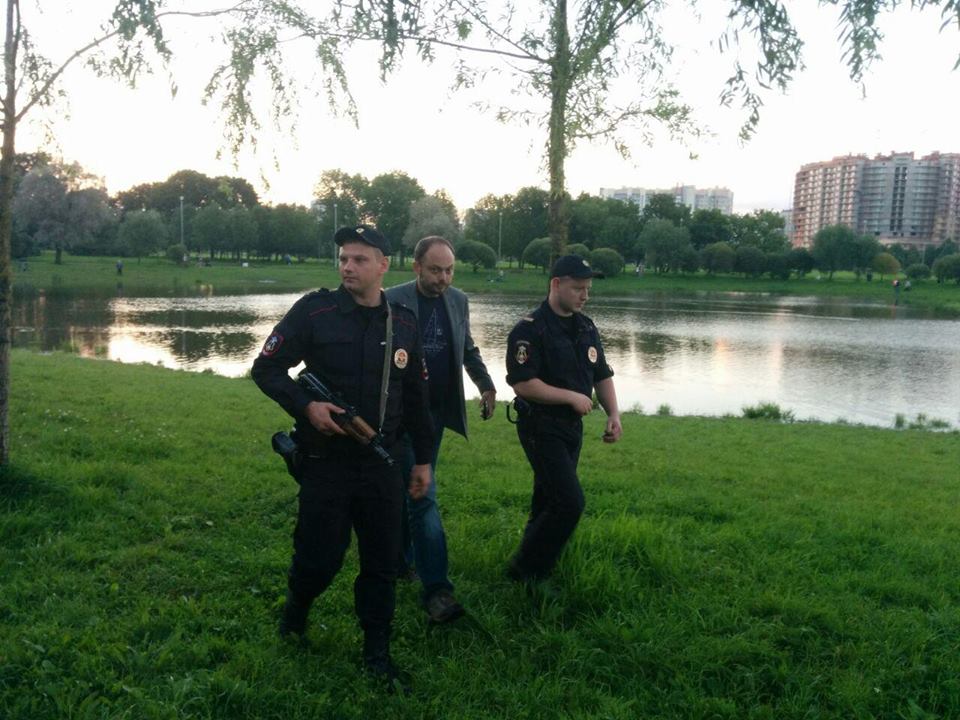Free and fair elections … so they said
For those people who have experience of these “free and fair elections,” they don’t quite seem that way.

Vladimir Kara-Murza
Meetings with voters held by candidates in the State Duma election are now to be considered “unsanctioned gatherings.” The St Petersburg police invoked this article (20.2) of the Code of Administrative Offences recently, when arresting State Duma election candidate Andrei Pivovarov, St Petersburg Legislative Assembly candidate Daniil Ken, the city’s well-known singer-poet Mikhail Novitsky, and the author of these lines. This happened during Andrei’s meeting with his electorate in Polyustrovo Park. What’s more, the Petersburg police were taking their orders from a plain-clothes officer in the Interior Ministry’s [anti-extremism] Centre E.
For some reason, I was reminded of Ilf and Petrov’s hero Ostap Bender, who went to see the underground millionaire Koreiko wearing the hat of a Kiev policeman.
Duma deputy Boris Vishnevsky rang St Petersburg police station No. 66 (Krasnogvardeisky district) to try and find out on what grounds we had been detained. The reason given (without any embarassment) was “holding canvassing events.” What can one say?
In our statements we all wrote that we had not broken the law, and regarded our arrests as unlawful. The detention of registered election candidates is of course doubly unlawful. Which is exactly what we shall be saying in court.
On the radio station Echo of Moscow the morning after the arrests, the presenters asked a reasonable question: what is this all for? Why turn an ordinary meeting between a candidate and his electorate, which only a few dozen people would have known about, into a public scandal? There is no logical answer to this question. Any more than there is to the question why the government has been doing all it can to disrupt Open Russia meetings all over the country. For a long time the system has been following a logic which it alone understands, where the main principle is to “harass and obstruct” in every possible way, with each event written up in a report and ticked. At some point this kind of system starts acting independently and in such a way as to make it unstoppable. But all such systems do sooner or later come to an end – in more or less the same way.



